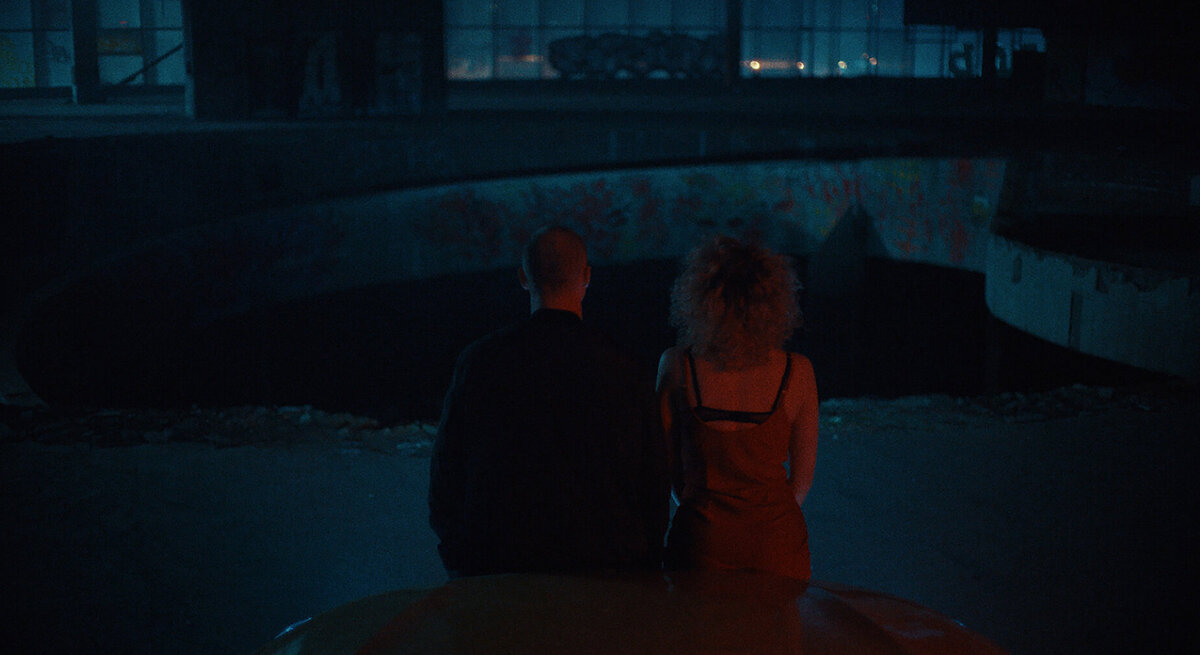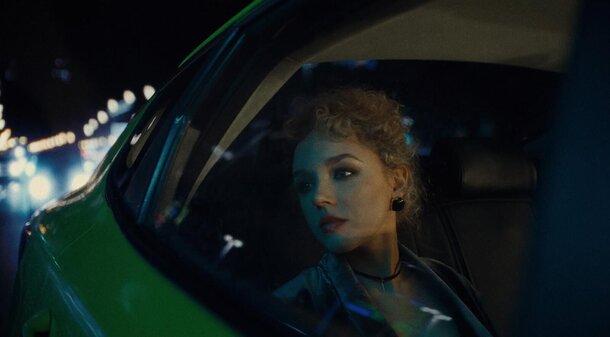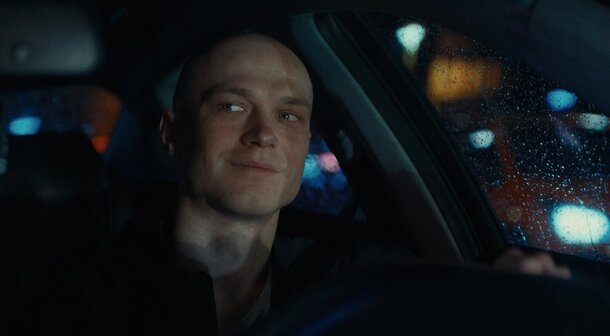«The Centaur» - Movie Review by Kinoafisha

The Night Life of Yuri Borisov.
A centaur is a mythological creature with the head and torso of a human and the legs of a horse. In various legends, it can appear as both an enemy and a friend to humans, often acting as a mentor. This duality of interpretations, as well as the expression that a car is an iron horse, perhaps explain the title of the new Russian thriller "The Centaur."
The protagonist, Yuri Borisov, is a taxi driver. He prefers to work at night, of which he informs his very first passenger, whom he analyzes within minutes like a skilled psychologist. "Night is a completely different life," he says with the wisdom of a prematurely grown-up boy. Next, there will be a young cryptocurrency enthusiast. And then, the "night butterfly" portrayed by Anastasia Talyzina will flutter in, and the movie will begin.
"The Centaur" is a classic thriller, combining several techniques to create tension. The action unfolds over the course of one night, mostly within the confined space of a car. And none of the characters reveal their true selves. It becomes a ride of dark horses through nocturnal Moscow with one complicating factor. Somewhere nearby, a maniac roams, dismembering young, beautiful, but sellable girls.

Of course, the main question that the viewer should ponder throughout the film is whether the taxi driver, Sasha, is the maniac. Say what you will, but the enigmatic actor Borisov knows how to be. His ability to switch emotions in an instant is more effective than indirect hints, which, of course, fill his comfortable-class performance. And the second main question: is the petite and curly-haired Lisa, who spills stories about influential yet peculiar clients, really defenseless? The other characters played by Sergey Gilyov, Grigory Vernik, and other lesser-known individuals are more like fellow travelers to this couple, introducing their own varying degrees of complexity into the rapidly racing towards dawn story.
The film was directed by Kirill Kemnits, a director without a distinctive authorial style, who hasn't really done anything notable after the trash-comedy "Zombie Vacations" with Yulia Volkova from "Tatu". "Centaur" can clearly rectify this situation. It is a meticulously crafted thriller, incorporating references to well-known works in the genre, but without accusing the director of plagiarism. It seems that anyone who makes serious films about taxi drivers adores Martin Scorsese. And those who want to tell the story of an inscrutable hero are inspired by Nicolas Winding-Refn. The signs of familiarity are evident in "Centaur". As well as the audacity to shoot a naturalistically dark film, where light manipulation adds tension, even though it is highly likely to irritate the audience. Remember the recent release of "Volunteer's Playlist", where after the first episodes the creators had to record cheerful videos and explain why their series is dark and there is no need to crank up the brightness on the monitor and TV to the maximum. "Centaur" is intended for theatrical viewing. So, it won't be possible to fiddle with audience settings, and in general, movie theaters are much darker than our homes.

Returning to the inventiveness of the imagery - it is dictated by the car itself. And here we must say "bravo" to cinematographer Robert Sarukhanyan, who managed to capture the space inside the car in a diverse way, while also avoiding the impression that the car was sawn for the convenience of working with the camera (even if that was the case). The car here, as banal as it may sound, is a full-fledged character, carrying within itself a great intrigue. And the abilities demonstrated by this character could serve as excellent advertisement for a car brand. If it weren't for the trail of danger that hovers over it.
"Danger" is the key word in the mood of "Centaur". This exploration of human nature does not proceed from good to bad, but rather from bad to worse. It is a test not so much of strength, but of the seaminess of anyone who dares to get into a conveniently arriving taxi. How far can people go with their secrets, how cunningly can they deceive for dubious goals, and are these goals even truthful? The answers to all these questions are not provided even in the final act, when the characters have the opportunity to become heroes. By this point, their nobility is not believable to such an extent that even in their good deeds, one sees selfishness. And this does not appear to be a dramatic mistake. It is a sad truth that the authors are attempting to convey to the viewer. But not too insistently. After all, in "Centaur", the intriguing story about a taxi driver who may turn out to be a maniac still takes center stage. As does everyone he encounters along the way. And the viewer, without realizing it, finds themselves in the navigator's seat.
